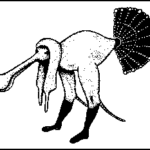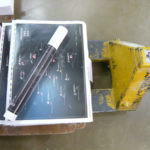a poetic and political necessity


Next week another delegation of OSP travels to Tel Aviv to present at the conference Open Code Versus Military Culture? Aspects in Israel Digital Culture organised by the Shenkar College for Engineering and Design. Following the talk, there will be a worksession at the Israeli Center for Digital Art.
From the conference description:
“The interest in the effects of technology on culture, and reciprocally, the effects of culture on technology, peaked with the unprecedented spread of the Internet. This conference seeks to promote public discussion about the significant relationships among technology, politics, culture and art. Israel has a very successful hi-tech industry. However, the local digital-technological culture is largely shaped by defense industries and software corporations.”
http://www.shenkar.ac.il/digitalcultureconf/digitalcultureconf_eng.html
Talk description:
Unimagining practice
Contemporary creative work depends largely on software tools. Full of “accepted ideas” about the way things ought to be done, tools are unavoidably shaped by conventional models of production and distribution. In 2006, OSP decided to use Free, Libre and Open Source Software only. We had grown frustrated with the perceived neutrality of the default designer toolset and wanted to take part in the construction of software that circumscribes what we make. In this talk we’ll go through some of the consequences of that choice: how it changed our habitual vocabulary, radically reorganised our workflow and in what way we engaged with the F/LOSS community developing those tools.
Workshop description:
Territorial practice
A two day worksession on F/LOSS cartographic tactics at the Israeli Center for Digital Art
Even if cartography is generally produced from a bird’s eye perspective, details cannot be drawn from a remote location; they must be confirmed/corrected/added on the spot. The territory must be literally practiced by annotating and drawing.
Working on location with territories and the people living onto it, offers both beautiful and efficient ways of exchanging practiced of space, and builds connections while mediating localized knowledges. Being able to consult, create, publish and exchange maps, to have access to cartographic data and know precisely where the openings are is both a poetic and a political necessity.
On Thursday 10 November, in the morning, OSP starts with a presentation of maps we are interested in, some of the projects we have worked on and the questions they raise. For the afternoon session, we invite participants to bring samples of maps they like/dislike, data they think that deserves geo-location, ideas for maps or edits to existing maps.
On Friday 11 November, we will group participants according to their interests and work together in response to needs, questions and ideas.
Depending on the input of the participants, the work will concentrate more on practical issues or conceptual ones.
Tools and materials we could decide to work with on day 2: OpenLayers, OpenStreetMap, drawing, geonames, GPS-tracking, gpsbabel, web services and API’s…






1 Comment ↓
1. Paulo
Oct 29, 2010 at 9:40 pm
would be great if these initiatives could happen in the palestinian side as well